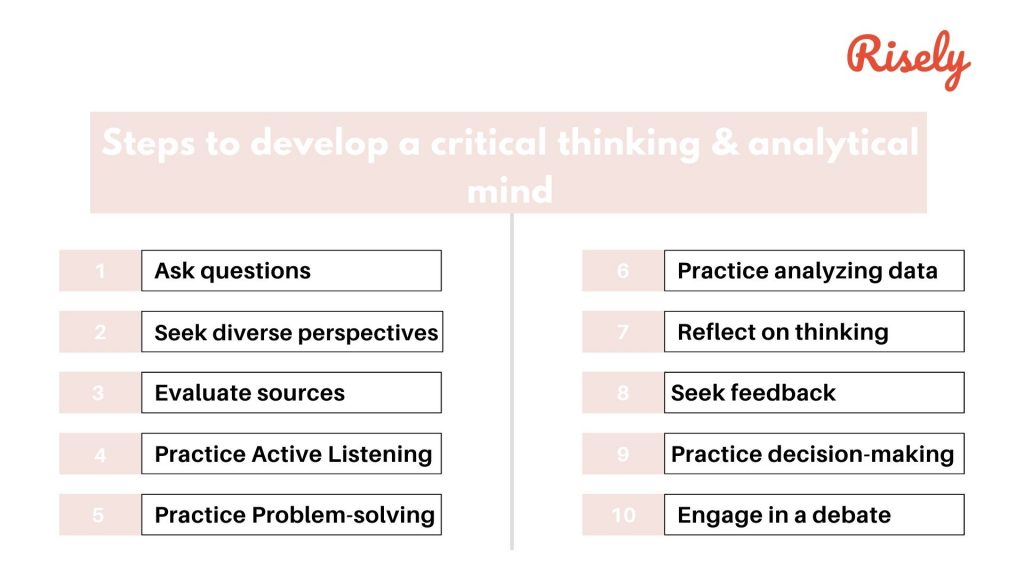Navigating Critical Thinking Challenges: Homeschooled Teens

In the wild and wonderful world of homeschooling, parents may find themselves face-to-face with a formidable foe that strikes fear into the hearts of even the most savvy educators and scholars: critical thinking challenges. As homeschooled teens navigate their way through the labyrinth of logical fallacies and cognitive biases, they must arm themselves with wit, wisdom, and maybe just a touch of sass. So grab your thinking cap and buckle up for a wild ride as we explore the highs and lows of teaching critical thinking to the next generation of independent thinkers.
Common Challenges Faced by Homeschooled Teens
As if being a teenager wasn’t tough enough, homeschooled teens face their own set of unique challenges that can make navigating puberty even more awkward and confusing. Here are some of the most common dilemmas faced by homeschooled teens:
- Social Skills: Trying to interact with other humans who aren’t related to you can be daunting when your only frame of reference is your pet goldfish.
- FOMO: Fear of missing out on all the typical teenage rites of passage like prom, football games, and cafeteria food can plague homeschooled teens who spend their days studying quadratic equations instead of sneaking out to make out behind the bleachers.
- Parental Supervision: Constantly being under the watchful eye of your parents can make even the most mundane activities feel like you’re auditioning for a role in a high-stakes reality show called ”Homeschooled and Confused.”
- Self-Motivation: Finding the drive to complete schoolwork when Netflix and TikTok beckon can be a Herculean feat for homeschooled teens who have all the temptations of the internet at their fingertips.

Developing a Strong Foundation in Critical Thinking Skills
So you want to be a critical thinking master, huh? Well, strap in and get ready to develop those brain muscles! Here are some tips to help you build a strong foundation in critical thinking skills:
- Question Everything: Don’t just accept information at face value. Ask questions, challenge assumptions, and dig deeper to uncover the truth.
- Practice Active Listening: Pay attention to what others are saying and really listen to their arguments. This will help you evaluate different perspectives and make more informed decisions.
- Seek out Diverse Perspectives: Don’t just surround yourself with people who think like you. Expose yourself to different viewpoints and learn to appreciate the value of diverse opinions.
Remember, critical thinking is like a muscle - the more you exercise it, the stronger it gets. So keep flexing those mental muscles and watch your problem-solving skills soar to new heights!

Utilizing Resources for Homeschooled Teens
Are you tired of hearing “I’m bored” from your homeschooled teen? Fear not, for there are a plethora of resources at your fingertips to keep them entertained and educated. From online courses to local community programs, the possibilities are endless!
One of the best ways to utilize resources for homeschooled teens is to tap into the power of the internet. Websites like Khan Academy, Coursera, and Crash Course offer a wide range of subjects for your teen to explore. Whether they’re interested in math, science, history, or even art, there’s something for everyone!
Don’t forget about your local library – it’s not just a place for books anymore! Many libraries offer workshops, clubs, and events specifically catered to teens. From book clubs to coding classes, your teen is sure to find something they’re passionate about.
And let’s not forget about the power of extracurricular activities. Whether it’s joining a sports team, taking dance lessons, or participating in community theater, these activities can provide valuable socialization opportunities and help your teen develop new skills.

Encouraging Independent Learning and Problem-Solving
Are you tired of constantly having to hold your students’ hands through every problem they encounter? Fear not, for there is hope! skills is possible, and it’s easier than you think!
One way to help foster independence in your students is to provide them with the tools they need to succeed on their own. This means giving them access to resources like textbooks, online tutorials, and study guides. Encourage them to use these resources before coming to you with questions. They just might surprise themselves with how much they can figure out on their own!
Another great way to promote independent learning is to give your students opportunities to work on projects and assignments that require critical thinking and problem-solving skills. Instead of spoon-feeding them the answers, let them struggle a bit. It might be hard to resist the temptation to swoop in and save the day, but trust me, it will pay off in the end.
And remember, learning is a journey, not a destination. is not about pushing your students to be perfect. It’s about empowering them to take charge of their own education and become the best version of themselves. So go forth, brave educators, and unleash the power of independent learning!

Building Communication Skills in a Homeschool Setting
When it comes to , there are a few key strategies that can make a big difference. First and foremost, encourage your child to engage in plenty of conversations with their peers – even if that means scheduling playdates with imaginary friends. Remember, practice makes perfect!
Another fun way to improve communication skills is through role-playing activities. Have your child pretend to be a charismatic talk show host interviewing their favorite stuffed animals or action figures. Who knows, they might just uncover the next great teddy bear philosopher!
Don’t forget about the power of storytelling. Encourage your child to write and share their own fantastical tales, complete with quirky characters and elaborate plot twists. Who knows, they might just be the next J.K. Rowling in the making!
Lastly, make sure to mix in some good old-fashioned public speaking practice. Have your child give presentations on their favorite topics – whether that’s the history of unicorns or the best ways to avoid eating vegetables. Remember, confidence is key!
Strategies for Enhancing Analytical Thinking
Analytical thinking is like a puzzle, and sometimes we just need to find the right pieces to put it all together. Here are some fun and wacky strategies to help you enhance your analytical thinking skills:
- Brain Teasers: Challenge yourself with brain teasers and puzzles to keep your mind sharp. The more you exercise your brain, the better you’ll become at analyzing and problem-solving.
- Reverse Engineering: Ever think about taking things apart to understand how they work? Try reverse engineering everyday objects or processes to enhance your analytical thinking abilities.
- Role-Playing: Put yourself in someone else’s shoes and try to analyze situations from their perspective. This can help you broaden your analytical thinking skills and think outside the box.
So, grab a brain teaser, take something apart, or step into someone else’s shoes to enhance your analytical thinking skills. Remember, the weirder the strategy, the more fun you’ll have!
Overcoming Bias and Embracing Different Perspectives
So, you think you’ve got an open mind, huh? Well, let’s put that to the test! When it comes to , it’s no easy feat. But fret not, dear reader, for I am here to guide you through this treacherous journey.
First and foremost, it’s essential to acknowledge that we all have biases. Yes, even you, the most enlightened of individuals. But fear not, for recognizing and accepting our biases is the first step towards overcoming them. It’s like admitting you have a sweet tooth – once you acknowledge it, you can make an effort to eat more veggies (and by veggies, I mean different perspectives).
Next, expand your horizons! Step out of your comfort zone and expose yourself to diverse ideas, cultures, and opinions. You wouldn’t eat mac ‘n cheese every day for the rest of your life, would you? Embrace the smorgasbord of perspectives that the world has to offer. Try new foods, read different books, engage in conversations with people who have contrasting views. It’s like a buffet for your brain!
Remember, it’s okay to be wrong. In fact, it’s liberating! Admitting that you don’t have all the answers opens up a world of possibilities. So, be humble, be curious, and above all, be willing to challenge your own beliefs. It’s like cleaning out your closet – it may be a daunting task, but once you declutter those old, musty biases, you’ll have room for a whole new wardrobe of perspectives!
FAQs
What strategies can homeschooled teens use to enhance their critical thinking skills?
One tip is to engage in debates with your family members – nothing like a heated argument over who left the dishes in the sink to get those brain cells firing! Another strategy is to read diverse materials and discuss them with a friend (or your pet rock if you’re feeling extra lonely).
How can parents support their homeschooled teens in developing critical thinking skills?
Parents can encourage their kids to question everything – even why they have to do chores or take out the trash. Additionally, parents can provide a variety of learning materials and activities to keep their teens’ minds sharp. And let’s not forget, a little bribery never hurt anyone – promise them extra screen time if they can successfully argue their point!
What are some common pitfalls homeschooled teens may face when trying to improve their critical thinking skills?
One common pitfall is falling into the trap of confirmation bias – only seeking out information that confirms their preconceived ideas. Another pitfall is becoming too complacent with their own opinions and not considering alternative viewpoints. And let’s not forget the classic teenager pitfall of thinking they already know everything and don’t need to learn anything new!
How can homeschooled teens apply critical thinking skills in real-life situations?
Homeschooled teens can apply their critical thinking skills by analyzing news stories and identifying bias, evaluating advertisements to see if they’re being manipulated, and solving everyday problems using logic and reasoning. And if all else fails, just use the classic teenager move of asking “why” until you annoy everyone around you into submission!
In Conclusion, Think Outside the Classroom!
As you navigate the murky waters of critical thinking challenges as a homeschooled teen, remember to embrace the unconventional, think outside the box, and never be afraid to question the status quo. Who knows, maybe one day you’ll be the one teaching your parents a thing or two about critical thinking! Keep rocking that homeschool vibe, and remember – the world is your classroom. Keep on thinking critically, my friends!






